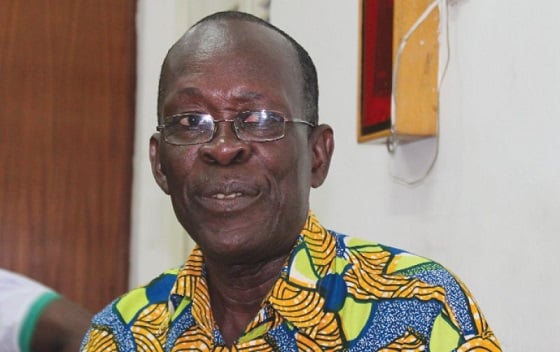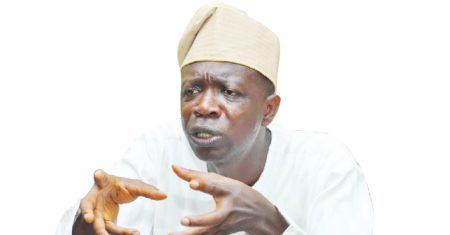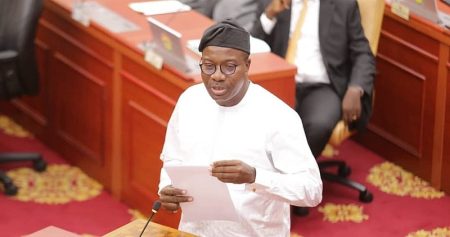The Ghana Federation of Labour (GFL) lauded the Mahama administration for its proactive engagement with labor unions, culminating in a successful negotiation of the 2025 base pay. This achievement marks a significant departure from the often-contentious negotiations that characterized the previous administration’s relationship with labor. The GFL emphasized the government’s commitment to open dialogue through the tripartite committee, fostering a collaborative environment that prioritized mutual benefit and trust-building. This collaborative approach stands in stark contrast to the previous government’s approach, which was often perceived by labor unions as confrontational and dismissive of their concerns. The successful negotiation not only secured a wage increase for workers but also signaled a renewed commitment to collaborative governance and social dialogue, setting a positive precedent for future labor relations.
The GFL Secretary-General, Mr. Abraham Koomson, highlighted the significance of the government’s willingness to engage in constructive dialogue. He described the government’s responsiveness to labor concerns as a “game-changer,” emphasizing the importance of a collaborative approach in protecting and promoting workers’ rights. The agreed-upon 10% salary increase, while considered modest, was acknowledged as a positive step given the challenging economic circumstances inherited from the previous administration. Mr. Koomson noted that the current economic difficulties significantly constrained the government’s capacity to offer a more substantial increase, a situation he attributed to the financial mismanagement of the prior administration.
The 10% increase in the National Daily Minimum Wage (NDMW) to GH₵19.97, effective for 2025, reflects the government’s commitment to improving workers’ welfare while acknowledging the prevailing economic realities. This decision, reached through the National Tripartite Committee (NTC), mandates compliance from all establishments, institutions, and organizations across the country. The wage adjustment is part of a broader strategy aimed at achieving a balance between fair compensation for workers and maintaining a stable and sustainable business environment. The government recognizes the importance of providing adequate wages while ensuring that businesses can remain viable and contribute to the overall economic health of the nation.
Mr. Koomson further revealed that both the Finance Minister and the Minister of Employment had advocated for a higher salary increase but were limited by the current economic constraints. He attributed these constraints to the reckless spending and financial mismanagement of the previous administration, arguing that their actions have now placed a significant burden on the entire nation. He criticized the previous government’s profligate spending habits and lamented the lack of sufficient oversight and accountability during their tenure. The current administration, according to Mr. Koomson, is now tasked with addressing the fallout from these past financial decisions.
Mr. Koomson also expressed support for President Mahama’s characterization of the country’s financial situation as a “crime scene,” a metaphor highlighting the severity of the economic challenges inherited from the previous administration. He attributed the current financial crisis to excessive and wasteful expenditures, emphasizing the need for greater fiscal responsibility and accountability moving forward. He called for a thorough investigation into the previous government’s financial dealings to ensure transparency and accountability for the current economic situation.
The government remains committed to finding a balance between ensuring fair compensation for public sector employees and navigating the challenging economic realities. The 10% wage adjustment represents a pragmatic approach to improving workers’ welfare while maintaining economic stability and promoting business sustainability. This strategy reflects the government’s understanding of the interconnectedness between fair wages, economic stability, and sustainable business practices. The government aims to create a virtuous cycle where improved worker welfare contributes to increased productivity and economic growth, thereby further strengthening the nation’s financial position.














